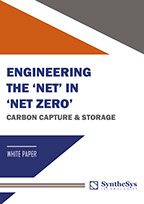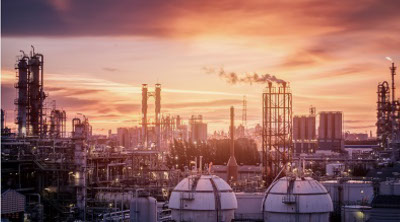
info@synthesys.co.uk • +44 (0) 1947 821464

Energy Systems Engineering
Solution Tour
The many crises of this century so far have only underscored how easily successful, lean and complex systems that turn resources into goods and services can be disrupted by the slightest change in their operating environment, or an unexpected zigzag in a variable that hadn't been fully accounted for. The natural world, of course, is the same, with life over aeons of evolution having found hyper optimised ways to survive in a changing, but until now mostly gradual or cyclical, environment.
With the discovery of climate change, we realised that the natural world and man's developments could no longer be treated as independent, and the two hardest problems the human race has yet encountered: understanding the natural world, and shaping the human world, had now become exponentially more difficult to get to grips with.
A Systems Thinking Approach to Net Zero
The processes, tools and principles of systems engineering and, more broadly, 'systems thinking', are particularly applicable in contexts where the success or failure of a project depends largely on the relationships between semi-independent components of a system which persists beyond the lifetime of the elements that make it up, especially when those relationships involve complex feedback, unpredictable behaviour (including the 'human element'), and environmental variables.
Such considerations show up in many ways when addressing the question of finding a path to net zero, not just in the innumerable cases where technology has yet to find a way to fill the gap, but also in those cases where a zero CO2 solution is almost a contradiction in terms. Industries like cement, steel, glass, ceramics and chemical refinement are all going to play an integral role in decarbonising the world, but significant quantities of CO2 are emitted by their processes as a matter of basic chemistry.

Engineering the Future of the Energy Industry

Systems engineering in particular – a discipline of engineering that is concerned with how the structure of complex systems affects their large-scale behaviour – can provide many insights into how this sort of complexity can be modelled, predicted, managed and addressed. Systems engineering is about drawing on the science of finding patterns in organised complexity, and the analysis of the emergent behaviour of a system rather than the specific behaviour of individual components.
We specialise in tool-supported systems engineering – providing our energy Customers with affordable systems engineering services, tools and training to increase their efficiency and effectiveness in delivering solutions.
As an IBM® Gold Business Partner, SyntheSys provides a unique blend of application knowledge, experience and a flexible delivery mechanism, which provides Customers with the right software solution and a deeper understanding of the tools to ensure maximum benefit.
Request a Demonstration
Featured Resources

Engineering the 'Net' in 'Net Zero': Carbon Capture and Storage
This Technical Article explores Carbon Capture and Storage (CCS) infrastructure programmes as a means of decarbonising industrial clusters. Deploying larger CCS systems – on the scale of an entire industrial park or a city – may mitigate financial and political risk, but will bring with it a new set of engineering challenges.
Such an approach requires engineers to anticipate the evolutionary development of the CCS system, with partner companies joining or leaving as circumstances demand. Each plant must be integrated into a single operating philosophy, with common interface standards into the shared system that only minimally constrain what will inevitably be a diverse set of feeding systems with different outputs and behaviour.
Customer Success
SyntheSys Assists Major Oil and Gas Player
The systems engineering process within an organisation is pivotal to organisational success. Particularly in the highly changeable energy sector. SyntheSys recently worked with an organisation who had made the decision to adopt a systems engineering approach to improve efficiency in the way they procure systems and improve their ability to demonstrate compliance. This decision was taken in direct response to the fluctuations in global oil prices.
New Custom Systems Engineering Approach

Want to Hear More?
Start the Conversation
Request a Demo
Request a Free Trial
Subscribe to OptimiSE Magazine
Email: cet@synthesys.co.uk
Telephone: +44 (0) 1947 821 464
A one-to-one demonstration will allow you to see how our tool-supported Systems Engineering approach is helping Engineering organisations across a range of industries manage change. Contact us here.
Put the tools and methods to the test with FREE access to leading IBM®
Engineering Lifecycle Management tools. Evaluate the tools on your own terms. Contact us here.
Would you like more useful content delivered to your mailbox directly? Subscribe below to receive OptimiSE e-magazine here.
Site Map
SyntheSys Technologies
© SyntheSys Systems Engineers Limited - All Rights Reserved
Version 2.2s dated 29 April 2024
